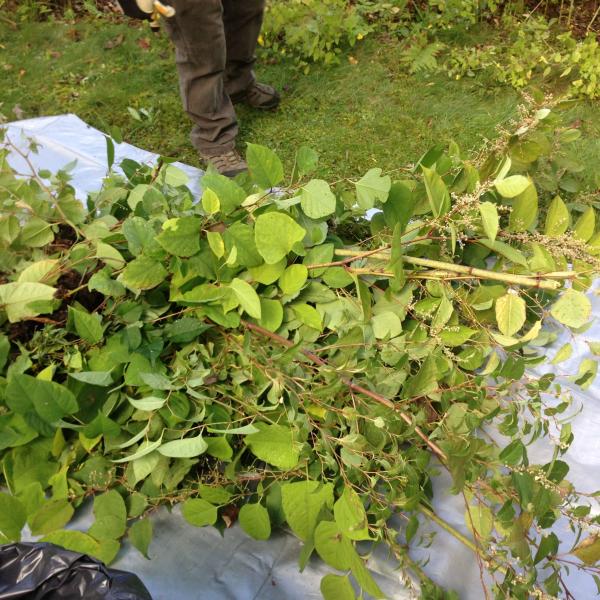
News Source
The Stowe Land Trust has been on the front lines in Moscow for the last year, working to push out the invaders and reclaim 50 acres of conserved land for the natives.
Chemical warfare was not an option, so the trust and its volunteers resorted to tried-and-true muscle power.
The Stowe Land Trust is working on a multiyear effort to restore native diversity and habitats to 50 acres of conserved land on the DuMont Meadow property at the end of Adams Mill Road.
Invasive plant control kicked off last spring with cutting back an infestation of mature nonnative, invasive bush honeysuckle, brush-hogging the meadow to open it up to pollinators and using an excavator to pull out more honeysuckle in the fall.
“We pulled out about 1,000 honeysuckle plants,” said Kristen Sharpless, conservation program manager for Stowe Land Trust. “And we didn’t use any herbicides, because we want to promote growth of the native plants.”
Volunteers were armed with hand saws, loppers and raw muscle power.
Accomplishing the goal by hand and using machine-powered methods instead of herbicides requires a longer-term commitment, but the trust has decided that in this case, it is well worth it.
Last week, about 30 volunteers helped to plant 550 new trees and shrubs that would normally be in the flood plain — such as silver maples and dogwood — along the Little River.
Many are native fruit- or nut-bearing trees that will produce food for birds and other critters, while creating a buffer to filter water and prevent riverbank erosion, Sharpless said.
The trust hopes to establish a mosaic of healthy habitats that attract and support a wide array of native plants and animals, and push out the invasive honeysuckle and Japanese knotweed.
Last Friday, 24 volunteers from National Life Group in Montpelier used their community service hours to assist Stowe Land Trust, along with a handful of volunteers from Arcana Gardens and Greenhouses in Jericho who decided to celebrate a birthday by planting trees.
The trees were supplied by Intervale Center in Burlington.
Jack Miceli of Waterbury, who works for National Life, said that every employee gets 40 hours a year to volunteer. Last week was volunteer week, and employees were given a list of 25 locations to choose from. The corporate development department, institutional markets, and the enterprise solution delivery office decided Stowe would be the best place for them, even though it was raining and cold.
“It’s a great team-building thing,” Miceli said. “Another group was in Plainfield planting, the tax department was helping at the food bank. … Our motto is ‘Do good, be good, make good.’”
All the volunteers are coordinated centrally, from the Vermont and Dallas, Texas, offices. About 1,000 National Life Group employees were out in full force in the two states, said Justin Tease.
Invasive plant management will continue at DuMont Meadow until all the honeysuckle has been demolished, and the new trees push the knotweed from the riverbanks. The trust couldn’t pull the knotweed for fear it that would weaken the root systems holding the riverbank together.
As part of another project along the Little River, Friends of the Winooski River joined Stowe Land Trust and Stowe middle and high school students on Tuesday to help plant 350 more trees on River Road. These trees will also help protect shoreline stability, improve water quality, and increase wildlife habitat.
Author Credit: Kayla Collier, Stowe Reporter
Photo Credit: E. Spinney, FPR